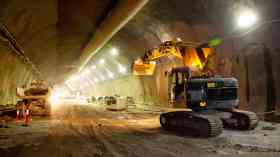Sue Robb of 4Children talks to Julie Laughton and Alison Britton from the Department for Education about the role of childminders in delivering the 30 hours free entitlement.
Ambitious strategy to tackle air pollution

Environment Secretary Michael Gove has launched an ambitious, long-term strategy to tackle air pollution and reduce particulates across much of the country by 2030.
The new Clean Air Strategy sets out plans to cut the costs of air pollution to society by £1.7 billion every year by 2020, rising to £5.3 billion every year from 2030. This follows a commitment made by the government to halve the number of people living in areas breaching WHO guidelines on particulate matter by 2025.
Currently, air pollution is one of the biggest threats to public health in the UK, behind only cancer, obesity and heart disease. In the UK, more than 40 cities and towns were at, or have exceeded, the World Health Organization limit.
Therefore, to combat this, the strategy includes plans to ensure that only the cleanest stoves are available for sale by 2022, introduce new legislation to prohibit the sale of the most polluting fuels and explore how local authorities can gain further powers to increase the rate of upgrades of inefficient and polluting heating appliances.
Gove said: “The evidence is clear. While air quality has improved significantly in recent years, air pollution continues to shorten lives, harm our children and reduce quality of life. We must take strong, urgent action. Our ambitious strategy includes new targets, new powers for local government and confirms that our forthcoming Environment Bill will include new primary legislation on air quality.
“While air pollution may conjure images of traffic jams and exhaust fumes, transport is only one part of the story and the new strategy sets out the important role all of us - across all sectors of work and society - can play in reducing emissions and cleaning up our air to protect our health.”
Claire Haigh, chief executive of Greener Journeys, said: “While we applaud the government’s stated commitment to tackle pollution, the Clean Air Strategy is a missed opportunity to get people out of their cars and to support more efficient and reliable public transport. Until there are fewer cars and vans on our roads we will not be able to make meaningful progress.
“Congestion is the biggest cause of roadside air pollution, and reducing the number of cars and vans on our roads is the only solution. A fully loaded double decker bus can take 75 cars off the road, and the latest generation of clean buses are cleaner than most modern diesel cars despite having 15 to 20 times the capacity. The strategy lays out plans to end the sale of conventional petrol and diesel cars by 2040, but immediate action is needed to ensure drivers are persuaded to change their habits now. To begin with, the government should end the freeze in fuel duty which has led to a 4% increase in traffic since 2011.”
Martin Tett, environment spokesman for the Local Government Association, said: “Councils are determined to reduce the impact of harmful emissions on the health of our communities but if the Government’s air quality plans and any new local powers are to be successful, they need to be underpinned by local flexibility and sufficient funding. Councils also need local powers to further tackle air pollution, particularly with regard to moving traffic offences, government support on planning and transport matters, and robust national action to help the country transition to low-emission vehicles and power generation.”
Company Focus
Located in Bromley, Japanese Knotweed Eradication Ltd has been providing solutions in the treatment and removal of Japanese Knotweed (Fallopia Japonica) for over a decade. During this time we have mastered a repertoire of methods, from herbicidal treatments to landscaping solutions, tailored to address the unique challenges our clients face with this pervasive weed.
Event Diary
UKREiiF has quickly become a must-attend in the industry calendar for Government departments and local authorities.
The multi-award-winning UK Construction Week (UKCW), is the UK’s biggest trade event for the built environment that connects the whole supply chain to be the catalyst for growth and positive change in the industry.
Supplier Profiles
Geo Energy
At GeoEnergy Design, we're on a mission to disrupt the traditional way heating and cooling ha
Latest Features
Professor Harith Alani, director of the Knowledge Management Institute at the Open University explains how AI can be used for good and bad.
Alex Lawrence, head of health & social care, techUK sets out techUK’s Five Point Plan for CareTech.

















